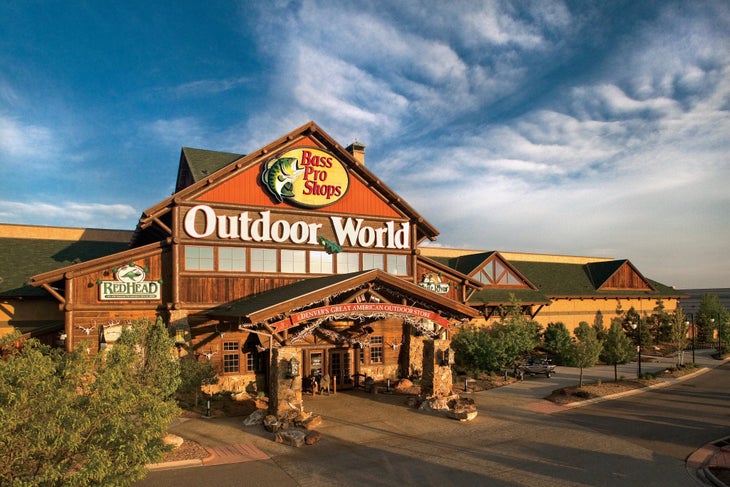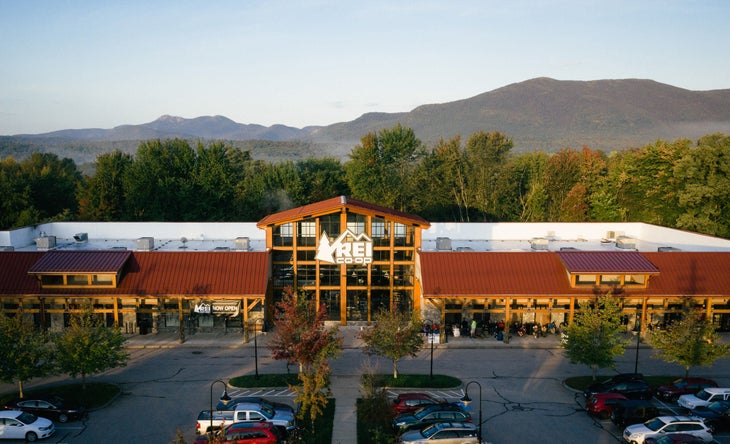If you’ve paid attention to the news in outdoor retail this week, you might be wondering what exactly is going on.
REI made waves with a recent announcement that 400 of the company’s retail employees would lose their jobs, effective July 15.┬áMountain Equipment Co-op┬ámade a similar move, letting go of┬ánearly 200 last week. At the same time, we’ve seen others like Bass Pro ShopsÔÇöwhich caters to a similar, or at least comparable, outdoor customerÔÇöhire thousands across the country even as the pandemic continues to rattle the economy.
So what gives? The answer, experts say, is complicated.
“Essential” Versus “Non-Essential”
A critical factor in the success and struggle of businesses during the pandemic has been the somewhat squishy definition of the word “essential,” used to classify which retailers were allowed to remain open as shutdown measures took effect in the spring.
As far back as late March, Bass Pro Shops was deemed “essential” because of its firearms departmentÔÇöa core category for the business. Without a hunting division, REI, MEC, and others┬áwere barred from operating stores for weeks. By contrast, in many cities across the nation, Bass Pro kept its doors open.

“It changes the calculus,” said Cara Salpini, an editor at Retail Dive in Washington, D.C., discussing the effects of shutting down stores for even a short period.
“When your stores are closed, even for a little while, retailers are still having to pay rent, and they’re not receiving any sales to back that up. Job cuts are one of the areas that companies can save money on,” Salpini said.
It’s a simple point but an important one: Every week, every day, every hour of lost sales eventually works its way down to the bottom line. That money has to come from somewhere.┬áAnd given that re-openings have mostly taken place gradually, with store hours and capacities limited, fewer employees are needed to handle each location of a large operation like REIÔÇöan added incentive to let people go.
Of course, the “essential” and “non-essential” distinction doesn’t balance the equation entirely. Bass Pro Shops, after all, did lay off some employees and furloughed many others in April. Some of the retailer’s locations shuttered temporarily, depending on variations in local and municipal ordinances.
Vaughn Peterson, general manager of Bass Pro Shops Denver, says that his store was closed for five weeks, but that upon reopening, many of the business’s core categories immediately performed as well, or better, than they did pre-pandemic.
“Our camping and fishing have been top categories, and [fishing is] something that REI doesn’t do. Our hunting categories, including firearms, have also been strong. Footwear has been strong for us because people are out hiking more. Each category compliments the others. If you’re coming in to get a tent and a new sleeping bag, you may reevaluate what you’re doing with your footwear,” Peterson said.
Composition of Product Offerings
Even more important than the success of one discrete category over another is the composition of sales percentages across all categories, and the performance (or underperformance) of high-volume departments. Salpini pointed out that, unlike Bass Pro Shops, retailers like REI and MEC rely heavily on apparel sales to bolster revenue.
“Certain areas of outdoor are doing well, but that’s not the same thing as the entire business performing well,” Salpini said. “REI might be seeing good sales in camping or biking, but a large amount of their merchandise is apparel. In April, total apparel sales in the U.S. fell 89 percent year over year. It was a massive dip. And that continued in MayÔÇönot to the same extent, but it was still significantly down. It was down in March, too.”

A┬ástudy┬ápublished by Retail Dive in early May found that 62 percent of apparel companies have furloughed employees since the pandemic began, the most of any business category examined. By contrast, not a single company that wasn’t deemed “essential retail” reported hiring employees in the last several months.
These combined factorsÔÇöthe strength of the “essential” label and the weakness of certain core categories at retailers like REI and MECÔÇömay help explain why recent staffing decisions have diverged so dramatically in the outdoor space.
What About Specialty Retail?
It’s hard to compare figures from small companiesÔÇöwhere a layoff of one employee might represent 10 percent of the workforceÔÇöto those of larger retailers that employ thousands. The “essential” versus “non-essential” distinction and the makeup of stores’ offerings still played a role in early-pandemic successes and failures for independent retailers, but more important seems to have been the role of community support in keeping small shops afloat.
A good case study is Alpenglow Sports in Tahoe City, California, which made headlines in March when locals banded together to purchase $75K of gift cards in four days to keep the business solvent.
This was, of course, a loan of sorts. Customers eventually returned to the store and used those gift cards, which Alpenglow had to factor into its balance sheet. But the money presumably allowed the business to continue paying rent and other expenses when cash flow slowed to a trickle. The most salient factor in Alpenglow’s ability to surviveÔÇöunlike REI, MEC, or any of the other big guysÔÇöwas the way it managed to secure those life-saving funds in the first place.┬áOwner Brendan Madigan simply went to his customers and asked.
It was a Facebook post that kicked off the outpouring of support. In Alpenglow’s case, it didn’t matter so much what product categories supported the bottom line, or whether the shop sold goods the state deemed “essential.” The company’s most materially valuable asset turned out to be the goodwill it had built within the community.
Illusions of Strength and Weakness
Even taking all of the above into consideration, it’s important to remember that, depending on how you slice it, layoffs and hirings can distort the picture of a company’s strength or weakness in meaningful ways.
For instance, despite the fact that Bass Pro Shop’s “hundreds” of layoffs at the beginning of the pandemic are, in all likelihood, outweighed by the addition of 5,000 new employees this month, the company’s recent surge doesn’t necessarily indicate financial solidity, just as REI’s loss of 400 workers doesn’t necessarily indicate shaky fiscal footing.
“We’re entering a period of time where consumers are starting to go on vacation, and since we’re in the middle of a pandemic, some of those more outdoorsy trips are likely floating to the top, which could boost sales in some categories,” said Salpini.
In other words, patterns can flip quickly, as we’ve seen through data collected by market research firms like the NPD Group since the pandemic began.
At Bass Pro Shops Denver, Peterson said that, even though apparel sales at his store took a hit from March to April, “they seem to be coming around now.” The NPD Group published an analysis two weeks ago that confirmed the same.
“While sales of apparel and footwear are still down compared to last year, year-over-year losses have been softening since mid-April,” the report states.
What It All Means
Given this fact, staff changes numbering in the hundreds at large companies like REI and MECÔÇöthough dramaticÔÇömay signal nothing more than a strategic tweak in one part of a larger, omni-channel sales effort.
“The pandemic has forced us to created new positions that we’ve had to fill,” Peterson said, in reference to the 27 new employees he’s hired in the last two months. “We need more staff to support our new buy-online-pickup-in-store sales and our curbside pickup effort.”
At MEC, the sentiment is the same.
“We have a better understanding of MEC member needs…and therefore have had to adjust staffing levels accordingly,” a representative for the company wrote in a recent email. “We are committed to moving forward in the best interest of our organization, employees, and members.”
Retail is suffering overall, there is no doubt. But in the end, that suffering may give way to adaptations that are, at least for the time being, sustainable.


